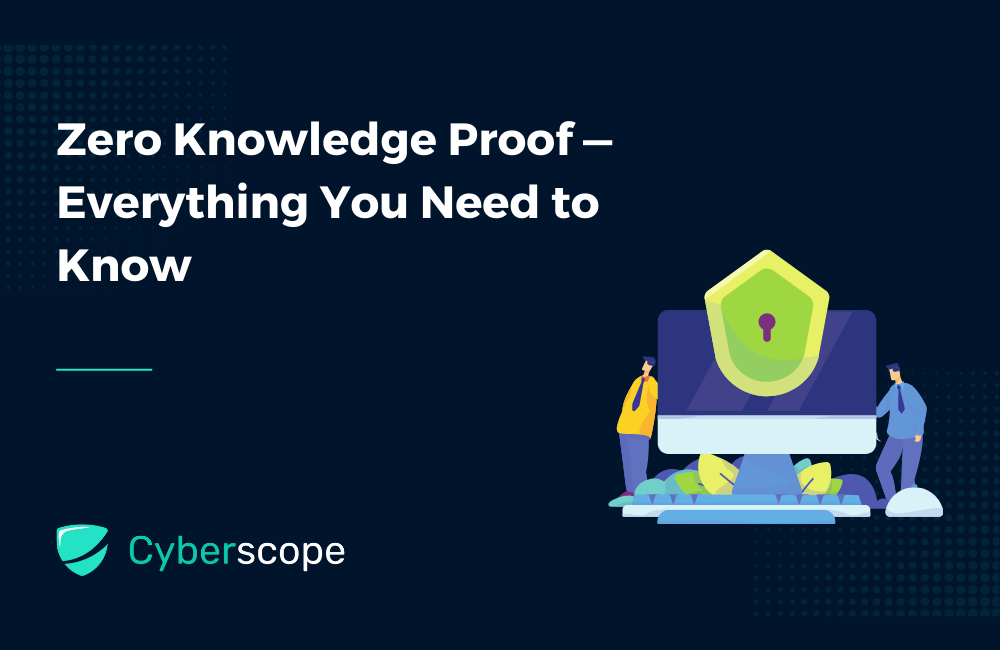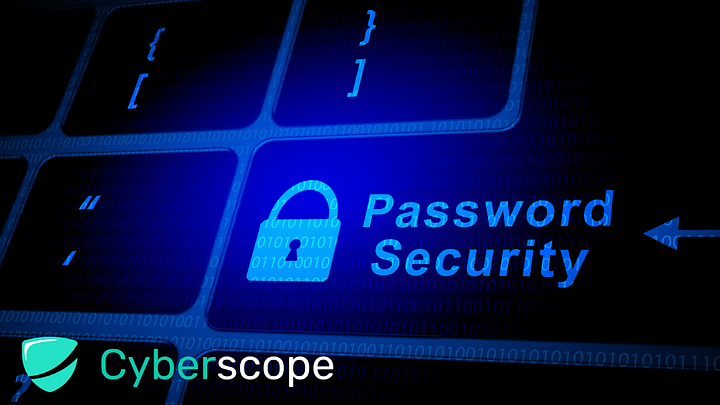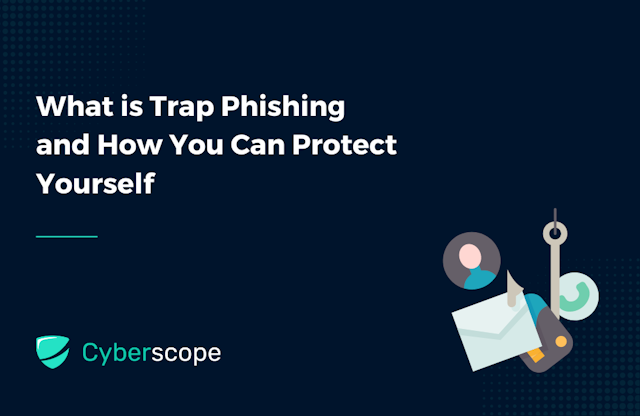

Zero Knowledge Proof — Everything You Need to Know

Introduction
Zero Knowledge Proof (ZKP) is a cryptographic technique that enables one party, known as the prover, to demonstrate to another party, known as the verifier, that a certain statement is true, without revealing any additional information beyond the validity of the statement.
Establishing trust between parties without requiring them to divulge sensitive information is the goal of ZKP, which improves privacy and security. A crucial component of ZKP is computational hardness, which makes it impossible for an adversary to trick the proof by identifying an alternate statement that is also true. This indicates that even for a strong hacker with access to significant computing resources, it would require more work to simulate the proof computationally.
A Chain of 4 Factors
The prover, the verifier, the statement, and the proof are the four main concepts in the Zero Knowledge Proof. The prover is the one trying to persuade the verifier that the information is true. The verifier, on the other hand, is only interested in whether the information is true they are not interested in learning anything else. The statement-information, such as having knowledge of a password, having a private key, or being the owner of a digital asset, is the mathematical expression that the prover intends to demonstrate to the verifier. The evidence offered by the prover to persuade the verifier that the statement is true is known as the proof.
The proof must persuade the verifier enough, but it cannot divulge any information other than the truth of the statement. Then the verifier shouldn’t be able to utilize the proof to learn new information that would allow them to pose as the prover or invade their privacy. Computational hardness is a key component of Zero Knowledge Proof because the proof must be written in a way that prevents an opponent from producing false proof for a competing assertion.
ZKP offers a means for parties to build confidence without disclosing private information, improving privacy and security overall. It is a potent tool with a wide range of uses, including blockchain, cloud computing, and cryptocurrency. We may appreciate how ZKP enables parties to interact safely while keeping their privacy by comprehending its fundamental ideas.

Types of Zero Knowledge Proof
In cryptography, there are several varieties of Zero Knowledge Proof (ZKP), each with unique benefits and restrictions.
Interactive Zero Knowledge Proof
The first kind is Interactive Zero Knowledge Proof (IZKP), which involves a back-and-forth conversation between the prover and the verifier to support the statement. In an IZKP, the prover offers a number of proofs, which the verifier examines and then challenges. After the verifier is persuaded of the statement’s veracity, the prover will utilize this challenge to build a new proof. Although it needs a lot of communication between the prover and the verifier, which may be time-consuming and computationally costly, IZKP is thought to be extremely safe.
Non-Interactive Zero Knowledge Proof
Another type of ZKP that does not call for back-and-forth communication between the prover and the verifier is called Non-Interactive Zero Knowledge Proof (NIZKP). With a NIZKP, the prover offers solitary evidence that the verifier may independently confirm without further contact. As a result, NIZKP is quicker and more effective than IZKP, but it is also less secure since the prover is able to provide false evidence before the verification process is completed.
In general, the decision to use ZKP is influenced by the particular application and the trade-off between complexity, efficiency, and security. To choose the most suitable ZKP for a certain use case, it is crucial to understand the distinctions between each type’s strengths and disadvantages.
Examples of Zero Knowledge Proof
Modern cryptography has several uses for Zero Knowledge Proof (ZKP), including privacy protection, digital signatures, and authentication. These are some instances of ZKP at work:
Password-Authenticated Key Exchange (PAKE)
Without disclosing the password itself, Zero Knowledge Proof (ZKP) techniques can be used to prove that someone knows a password. This is done by employing a ZKP protocol called a Password-Authenticated Key Exchange (PAKE).
Using the user’s password and a random number, the server and user jointly calculate a cryptographic key in a PAKE protocol. A secure channel of communication between the user and the server can be established using the key that is generated as a consequence. Yet, the server does not discover the user’s password, and the user does not learn the server’s secret key.

This approach entails the user demonstrating to the server that they are familiar with the password without actually disclosing it. This is achieved through a ZKP proof, in which the user creates a cryptographic demonstration of their password knowledge without disclosing the password itself.
Without disclosing it to the server or anybody else, the ZKP proof guarantees that the user knows the password. The password is kept a secret even during the authentication process, offering a high level of security and privacy.
There are several uses for PAKE protocols with ZKP, including
- secure remote access authentication
- e-commerce and
- online banking
They are a useful tool in many applications that demand strong authentication and privacy safeguards since they provide a highly secure technique of confirming knowledge of a password without disclosing the password itself.
Digital Signatures
They can be used in the context of ZKP to confirm the prover’s identity and guarantee that the proof was not tampered with during transmission. The prover uses their private key to sign the proof, and the verifier uses the prover’s public key to confirm the signature. The verifier can be sure that the evidence was created by the prover and was not altered if the signature is legitimate. When employing digital signatures, a user must demonstrate that they have the private key connected to the related public key. Without disclosing the private key itself, a ZKP can be used to demonstrate possession of the key.
Confidentiality
Blockchain-based systems can utilize zero-knowledge proofs (ZKP) to prove ownership of digital assets like cryptocurrencies without revealing the owner’s identity. This is so that a statement may be confirmed using ZKP without disclosing any information other than the statement being verified.
For instance, a ZKP might be used in a blockchain-based system like Bitcoin to prove ownership of a certain quantity of Bitcoin without disclosing the owner’s name. This is done by confirming that the individual holds the private key associated with a particular Bitcoin address, without releasing the private key itself or any other identifying information

Secure Multi-Computing
MPC can employ Zero-Knowledge Proofs (ZKP) to allow several participants to collaborate on a calculation without exposing their individual contributions. In order to guarantee that each participant’s input is kept private and safe, a variety of cryptographic algorithms, including ZKP, is used to do this.
In MPC, many participants work together to complete a calculation while maintaining the privacy of their individual contributions. This is crucial when working with sensitive data, such as financial or medical information, where privacy and security must be guaranteed.
For instance, ZKP can be used to demonstrate that each party’s input is a genuine salary without disclosing the actual value of the pay in an MPC context when numerous parties desire to compute the average of their wages without disclosing their individual incomes. This makes it possible to complete the computation without revealing any private data.
Implementing MPC with ZKP may be done in a variety of ways, including by employing secure multi-party computing protocols like the GMW or Yao’s protocols. With the use of ZKP, parties may demonstrate the accuracy of their contributions using these protocols while maintaining the secrecy of their inputs.
ZKP Applications
Zero Knowledge Proof (ZKP), can offer a high level of confidentiality and anonymity. The following are some of the most noteworthy ZKP applications:
Cryptocurrencies
ZKP is used to preserve transaction privacy while assuring its legitimacy in the realm of cryptocurrency. Transactions may be validated using ZKP without disclosing any private information about the users involved. This is especially crucial in a system like blockchain, where transactions are publicly recorded and open to everyone’s view.
Authentication
ZKP may be used for authentication without disclosing private information about the users. When users need to access secure systems or information, this is very helpful.
Blockchain
In blockchain-based systems, ZKP is also used to demonstrate ownership of digital assets like cryptocurrencies without disclosing the owner’s name. By doing this, the system’s security is maintained while ensuring the confidentiality of the owner’s transaction history.
Cloud Computing
ZKP may be used in cloud computing to check the accuracy of data that is stored remotely without requiring the cloud provider to have access to the data directly. Users are still able to check the data’s integrity while maintaining control over it.
Boundaries
Although Zero Knowledge Proof (ZKP) is a strong authentication and communication tool, there are several restrictions that need to be taken into account.

Setup
The requirement for a trustworthy setup is one of the main restrictions of ZKP. This is so because the setup’s use of randomization affects how secure the proof is. The security of the entire system may be jeopardized if the setup is compromised. To maintain the integrity of the proof, the setup procedure must be carried out in a safe and reliable setting.
Computational Complexity
The complexity required to generate and verify the proof is another restriction of ZKP. For some applications, it may not be feasible due to the lengthy computing time needed.
Compatibility
Integrating ZKP protocols into existing workflows might be challenging since they frequently aren’t compatible with current systems. This makes practical ZKP implementation difficult.
Adaptability
Lastly, ZKP has a limited potential to scale. The computing time needed to construct and verify the proof grows together with the magnitude of the assertion that has to be proven. Due to this, scaling the system to accommodate high amounts of transactions or data may be challenging.
Conclusion
In conclusion, Zero Knowledge Proof (ZKP) is a cryptographic procedure that enables a prover to persuade a verifier that a statement is true without disclosing any information other than the validity of the statement itself. Due to its capacity to offer privacy, secrecy, and security in a variety of applications, ZKP has grown into a potent tool for secure communication and authentication. ZKP is based on the idea of computational hardness, which denotes the difficulty of solving a given task in an acceptable period of time. This characteristic guarantees the security of the evidence since it would be practically difficult for a thief or a scammer to compromise the proof.

.png%3Falt%3Dmedia&w=640&q=75)

